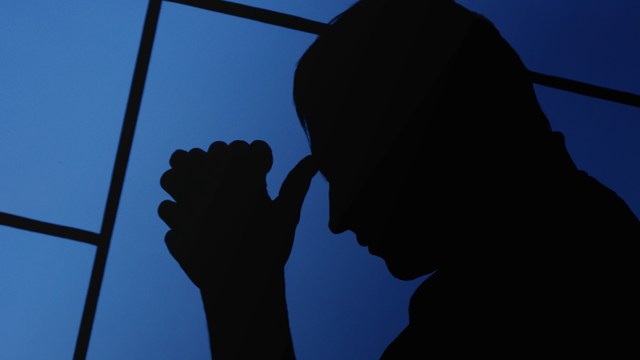Numerous studies have reported that depression can have a negative impact on one’s health. A new UCLA study has found that depressed men with prostate cancer are diagnosed with a higher stage of disease, receive less effective treatment, and do not live as long as men who are not depressed.
The authors suggest that the negative outcomes may be the result of several factors, including bias against the mentally ill, depression’s impact on biological cancer processes, the depressed man’s lack of interest in his general health, disinterest in receiving more effective care, and missed opportunities by doctors to educate patients regarding prostate cancer screening and treatment, explained lead author Dr. Jim Hu, UCLA’s Henry E. Singleton Professor of Urology and director of robotic and minimally invasive surgery at the David Geffen School of Medicine at UCLA.
The study group comprised 41,275 men diagnosed with localized prostate cancer; the patients were enrolled in the Surveillance, Epidemiology and End Results (SEER) Medicare database. Among these men, the investigators identified 1,894 men with a depressive disorder that was present in the two years before the cancer was diagnosed. “Men with intermediate- or high-risk prostate cancer and a recent diagnosis of depression are less likely to undergo definitive treatment and experience worse overall survival,” explained Dr. Hu. He added, “The effect of depressive disorders on prostate cancer treatment and survivorship warrants further study, because both conditions are relatively common in men in the United States.”
Dr. Hu noted that demographic and socioeconomic differences can affect treatment and outcomes in prostate cancer; however, the impact of mental health disorders has remained unclear. Depression has been associated with an increased probability of not receiving the best treatment, as well as a decreased overall survival in other cancers, including breast and liver cancers. Despite that, studies are lacking regarding the relationship between depression and diagnosis, treatment, and outcomes in prostate cancer. He explained that the study helps shed some light on the issue; however, further examination is needed.
The investigators also found that men with prostate cancer who were older, had lower income, who suffered from other medical problems, were white or Hispanic, who were unmarried, and those residing in non-metropolitan areas were more likely to be depressed. Furthermore, in contrast to men who were not depressed, depressed men were less likely to seek out appropriate therapy such as surgery or radiation. Dr. Hu noted that this finding was “surprising, because depressed men were more likely to see physicians in the two years prior to prostate cancer diagnosis compared to non-depressed men.”
With the exception of skin cancer, prostate cancer is the most commonly diagnosed cancer in men. An estimated 233,000 new cases of prostate cancer will occur in the US in 2014. Among these, nearly 30,000 deaths will occur. The authors wrote: “These results point toward a newly identified disparity in the management of men with incident prostate cancer. Considering the marked prevalence of both prostate cancer and depression, additional efforts are needed to better understand and ameliorate the decreased survival following prostate cancer diagnosis in the depressed male patient.”















